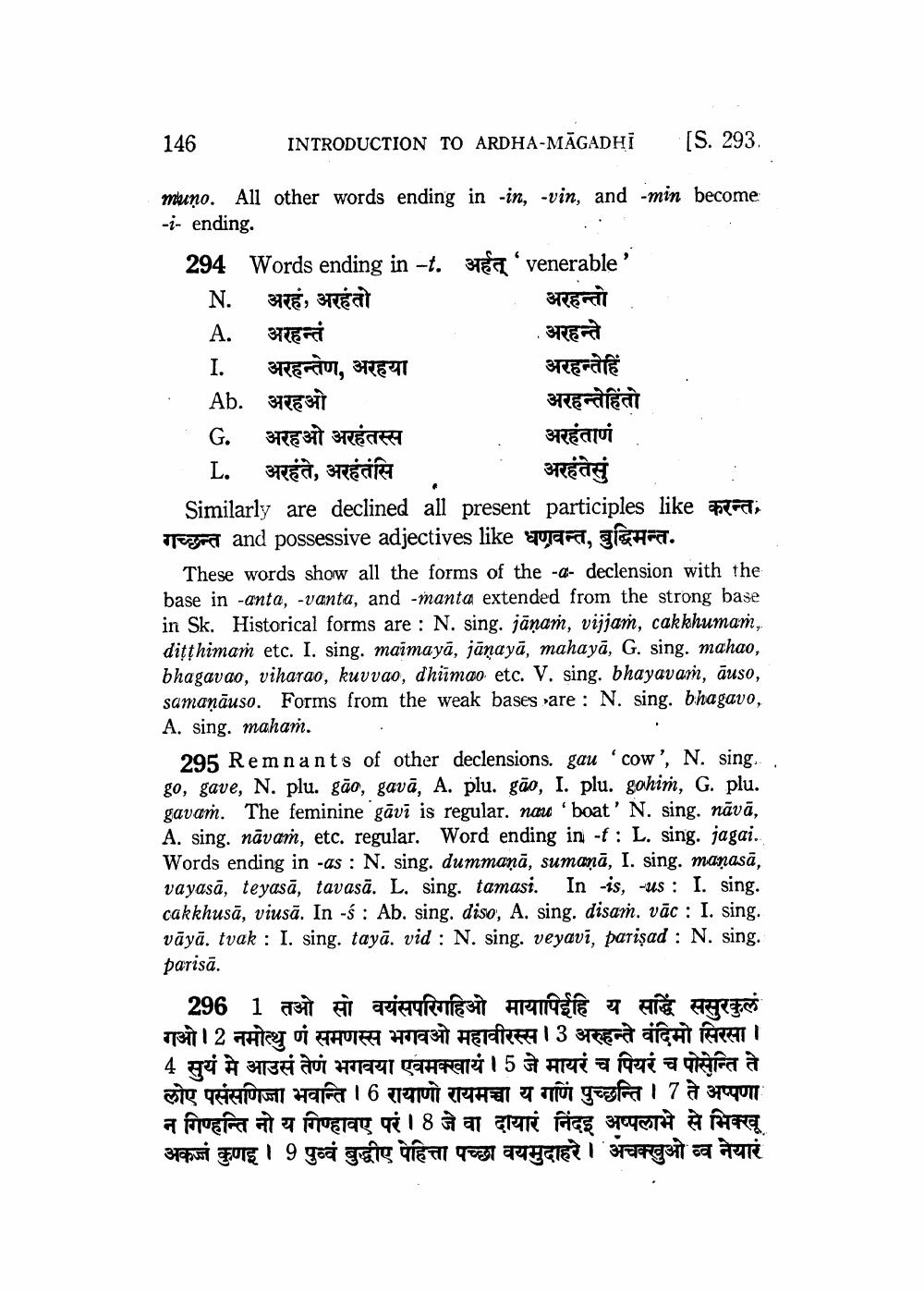________________
146
INTRODUCTION TO ARDHA-MĀGADHI
[S. 293.
. अरहन्ते
miuno. All other words ending in -in, -vin, and -min become -i-ending. 294 Words ending in -t. अर्हत् ‘venerable' N. अरहं, अरहंतो
अरहन्तो . A. अरहन्तं I. अरहन्तेण, अरहया
अरहन्तेहिं Ab. अरहओ
अरहन्तेहितो G. अरहओ अरहंतस्स
अरहंताणं . L. अरहंते, अरहंतसि
अरहंतेसुं Similarly are declined all present participles like करन्त, गच्छन्त and possessive adjectives like धण
These words show all the forms of the -- declension with the base in -anta, -vanta, and -manta extended from the strong base in Sk. Historical forms are : N. sing. janam, vijjam, cak khumam, ditthimam etc. I. sing. maimayā, janayā, mahayā, G. sing. mahao, bhagavao, viharao, kuvvao, dhiimao etc. V. sing. bhayavam, āuso, samaņāuso. Forms from the weak bases are : N. sing. bhagavo, A. sing. maham.
295 Re m n ants of other declensions. gau 'cow', N. sing.... go, gave, N. plu. gão, gavā, A. plu. gão, I. plu. gohim, G. plu. gavam. The feminine gavi is regular. nane 'boat' N. sing. nāvā, A. sing. nāvam, etc. regular. Word ending in -f : L. sing. jagai.. Words ending in -as : N. sing. dummanā, sumaņā, I. sing. manasā, vayasā, teyasā, tavasā. L. sing. tamasi. In -is, us: I. sing. cakkhusā, viusā. In -ś : Ab. sing. diso, A. sing. disam. vāc : I. sing. vāyā. tvak : I. sing. taya. vid : N. sing. veyavi, parisad : N. sing. parisā.
296 1 तओ सो वयंसपरिगहिओ मायापिईहि य सद्धिं ससुरकुलं गओ। 2 नमोत्थु णं समणस्स भगवओ महावीरस्स। 3 अरुहन्ते वंदिमो सिरसा । 4 सुयं मे आउसं तेणं भगवया एवमक्खायं । 5 जे मायरं च पियरं च पोसेन्ति ते लोए पसंसणिज्जा भवन्ति । 6 रायाणो रायमच्चा य गाणं पुच्छन्ति । 7 ते अप्पणा न गिण्हन्ति नो य गिण्हावए परं । 8 जे वा दायारं निंदइ अप्पलाभे से भिक्खू अकजं कुणइ । 9 पुव्वं बुद्धीए पेहित्ता पच्छा वयमुदाहरे। अंचक्खुओ व्व नेयारं




